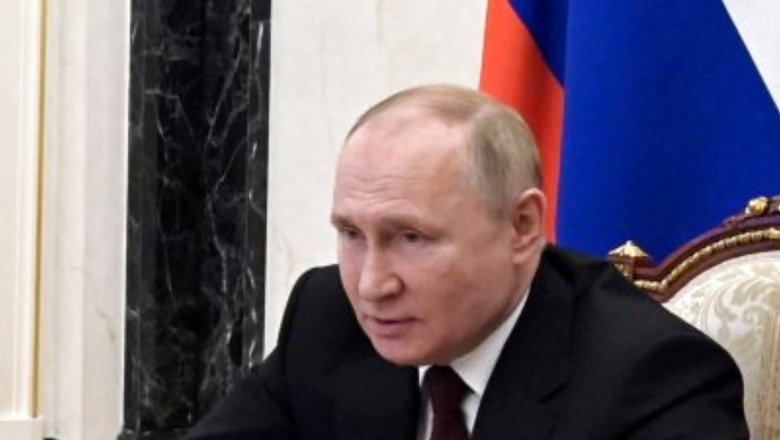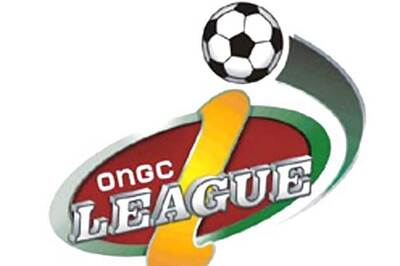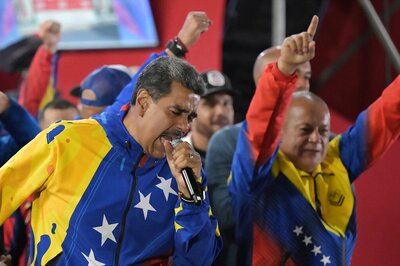
views
Predictable moral outrage apart, the uniform and overwhelming reaction of the United States and its European allies to Russian invasion of Ukraine is utter shock. In one of history’s countless ironies, the ‘shock and awe’ of Gulf War — the crown jewel moment of American exceptionalism — has now been resurrected in the collective psyche of an unnerved West.
At the recently concluded Munich Security Conference, the conference on international security where the Western elites gathered around a table discussing ways of dealing with Vladimir Putin, Kaja Kallas, prime minister of Estonia, said during a panel discussion that “Europe is not defined by geography rather by principles and values.”
She was merely voicing the collective attitude of a Europe busy evangelising liberal values and human rights across the globe instead of militarily strengthening itself in a theatre where Russia remained wounded and grieving, not weak or incapacitated.
For a security alliance that came together as the symbol of military power, predicated on use of force, NATO became a reflection of the politics and policies that runs through the veins of post-Cold War era — light-headed, arrogant and woke.
The Russian president has showed, once again, that borders do matter and ignorance of power politics in favour of wokeism and signaling carries a heavy cost. Actors serious enough, willing to take risks and withstand pain cannot be prevented from acting by mere rhetoric or even sanctions.
Despite intelligence sources predicting such a possibility, months of massive Russian troop deployment along Ukrainian borders, and even while watching tanks rolling in and missiles landing in several Ukrainian cities, the US-led West still cannot quite believe that Putin has really attacked Ukraine, and wars of yore are indeed possible in a 21st century ‘globalised, borderless’ world — let alone the heart of Europe.
The war has just started with Putin’s declaration on Thursday of a “special military operation”. Putin has already shown, in the few hours since declaration, that he is unlikely to keep the aggression restricted to eastern part of Ukraine. In fact, at the time of writing this column, Ukrainian foreign minister has taken to Twitter to confirm that this is not a Russian invasion only in the east of Ukraine, “but a full-scale attack from multiple directions.”
The trajectory and consequences of this war, as always, is impossible to predict. And yet, regardless of how this ends, Putin has already carried out a violent reordering of the entire security architecture of Europe and inflicted a crushing ideological defeat on post-Cold War liberal triumphalism when the roots of this crisis were sown.
It wasn’t meant to be this way. We were told that realism is dead. The collapse of USSR marked the end of great power conflict and the beginning of a time when states — democratic, liberal and free — will make an inevitable march towards progressivism led by the leader of the free world.
Political scientist Francis Fukuyama told us about the End of History, that the logic of war has ended decisively in favour of eternal peace and democracy. Harvard professor Stanley Hoffmann told The New York Times that “this wisdom calls itself ‘realism,’ … is utter nonsense today”.
Then US secretary of state Madeleine Albright said in 1998 that “we are America; we are the indispensable nation. We stand tall and we see further than other countries into the future…”
This stance was predicated on an assumption that “instead of competing for power and security, the world’s nations would concentrate on getting rich in an increasingly open, harmonious, rules-based liberal order, one shaped and guarded by the benevolent power of the United States,” as Stephen M. Walt writes in Foreign Policy.
Turns out that the celebration was premature. In the hubris that victory begets, the NATO made a series of expansions in the east at a time when the US was punch drunk in its moment in history and Russia at its weakest, the guarantees on NATO’s eastward expansion that Moscow thought were ironclad later turned out to be ‘verbal, not written agreements’.
It seems specious to argue — at a time when the Russian troops are inside Ukraine and shells are flattening its cities — that NATO’s unbridled expansion has something to do with this crisis instead of pinning the blame entirely on a madman called Putin, the agent of evil solely responsible for the turn of events in Europe.
As The New York Times editorial board writes, “Putin’s attack is not primarily about NATO or security. It’s all about his xenophobic, imperial and misguided notion that Ukraine was inherently an appendage of Russia.” Or as NATO states, that “Russia’s horrifying attack on Ukraine… is entirely unjustified and unprovoked.”
Horrifying, certainly. But unprovoked? Does the turn of events since the Cold War has absolutely nothing to do with the crisis that is unfolding before our eyes? Does the present reside on its own, in medias res, disconnected from the past? To dismiss these questions as “Russian apologism” or “Putin’s narrative”, that western commentators are prone to do, is precisely the combination of moral certitude and reckless arrogance that is partly responsible for this predicament.
As former war reporter Aris Roussinos writes in Unherd, “At its moment of greatest strength in the Nineties, the American empire expanded to encompass these borderlands, taking the former satellite states of the Soviet Union under the NATO umbrella. Now that the great empire is itself weakened by political turbulence at home and an existential challenge in East Asia, a resurgent Russia feels emboldened to renegotiate this settlement by the threat of force, demanding that not just that NATO advances no further eastward, but also that it withdraws from the region.”
War presents the final and decisive settlement of a debate. And Putin reckons that now is his chance to settle the debate when Russia has entered into a quasi-alliance with the presumptive superpower and the ruling hegemon is in decline, spending its energies in keeping the flock together, stretching itself across several theatres and distracted with polarised politics at home.
ALSO READ | In Russia-Ukraine War, India Finds Herself in a Pickle
The debate, in essence, concerns Russia’s sphere of influence, into which we may add the intention of Putin to leave a lasting legacy. It may not sound politically correct, but it needs to be stated that Russia isn’t Kenya. Universal normative principles are not absolute and carry little validity when it comes to actions of states that are ruled law of power and proximity.
To deny this is to deny history and reside in the ivory tower of delusion.
Great powers may be defeated, weakened and even have its wings clipped but they will seek a sphere of influence and will nurture a deep-seated grievance. Revanchism is a powerful motivation. It is preposterous to think, as western analysts tend to do, that Putin does not reflect popular Russian opinion.
Rodric Braithwaite, who was British ambassador to Moscow when the Soviet Union collapsed, tells Wall Street Journal that “what Putin says about the humiliation of the Soviet collapse, the enlargement of NATO, and the intimate historical link between Russian and Ukrainian history is not his own idea… Millions of Russians think and feel just like he does.”
If sphere of influence was an obsolete concept, then the Cuban Missile Crisis wouldn’t have erupted, and the world wouldn’t have faced impending war between two nuclear superpowers over Nikita Khrushchev’s secret agreement with Fidel Castro to place Soviet nuclear missiles in Cuba. If great powers did not worry about immediate neighbourhood then Ronald Reagan administration wouldn’t have engineered the overthrowing of Left-wing Sandinistas in Nicaragua in the early 1980s to safeguard “national security.”
As a great power, Russia seeks strategic depth, and its invasion of Ukraine, no matter how offending it sounds to our sensibilities, is rooted in this motivation. In his view, the West betrayed Russia by going back on its words, expanding NATO at a time when Russia was weak and degraded, and he now seeks a payback of that humiliation.
It is possible to condemn Putin’s actions — invasion of a country’s territorial sovereignty is indefensible — and point out the hubris of the West that led to this crisis. Putin’s actions are a reminder that realist statecraft isn’t obsolete, and fashionable theories of international relations come a cropper during great power conflict.
Read all the Latest Opinion News and Breaking News here

















Comments
0 comment